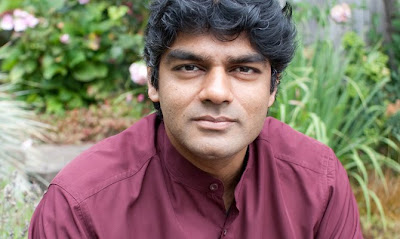News - Cover Story
How did a hardcore salafist turn into a guru desai?
Character from an Abhishek Bachchan film helped an alleged terrorist, fighting for purity of Islam, to move around the UK undetected
By Danish Khan
 |
| Gurukant Desai aka Abdul Mannan Miah arrested for a Christmas terror conspiracy responds as he is taken away by British authorities |
To gauge the magnitude of the incongruity, it's important to understand what drives the Salafists. One of the fastest-growing sects, Salafists believe that Islam has strayed from its origins and has grown decadent over the centuries. They call for restoration of Islam in its purest sense as preached by the Prophet and his companions (Salaf in Arabic).
In its efforts to create a new world order, the al-Qaeda has increasingly veered towards Salafism. So the induction of a Hindu in their ranks was bound to raise eye-brows.
It now transpires that Gurukant Desai was just a Bollywood-inspired ruse to allow an alleged operative to live and move around freely without inviting suspicion. ‘Desai’ has no links to India.
The man with the smirk and feral eyes you see in the picture alongside is a Bangladeshi, and his real name is Abdul Mannan Miah who lives in Cardiff with his wife and two children.
Last weekend he, along with Omar Sharif Latif and Abdul Malik Miah-the latter is his brother-were picked up from Cardiff, Wales, on charges of allegedly planning terror raids on London Eye, British synagogues, the US embassy in London and an attack on mayor Boris Johnson. On Monday, they were joined by six others picked up from different parts of the country on the same charges at a court in London.
In its efforts to create a new world order, the al-Qaeda has increasingly veered towards Salafism. So the induction of a Hindu in their ranks was bound to raise eye-brows.
It now transpires that Gurukant Desai was just a Bollywood-inspired ruse to allow an alleged operative to live and move around freely without inviting suspicion. ‘Desai’ has no links to India.
The man with the smirk and feral eyes you see in the picture alongside is a Bangladeshi, and his real name is Abdul Mannan Miah who lives in Cardiff with his wife and two children.
Last weekend he, along with Omar Sharif Latif and Abdul Malik Miah-the latter is his brother-were picked up from Cardiff, Wales, on charges of allegedly planning terror raids on London Eye, British synagogues, the US embassy in London and an attack on mayor Boris Johnson. On Monday, they were joined by six others picked up from different parts of the country on the same charges at a court in London.
 |
| Mohamed Nasrul Islam, the councillor from Cardiff Riverside. |
Locals alleged that some of the youth in the area were earlier involved in petty crimes which could have been the reason for Abdul Mannan Miah to change his name.
There were frequent disagreements with the local Imam on the way he preached Islam and during recent elections they distributed leaflets saying that voting was haraam (disallowed by their religion). Another councillor Jaswant Singh said he often met people moving door-to-door but he had no recollection of anyone by the name of Gurukant Desai.
When Mumbai Mirror contacted the police, they refused to comment on Desai.
Mohamed Nasrul Islam, the councillor from Cardiff Riverside from where he was arrested told Mumbai Mirror: “The local community has been shocked by the arrests of the three youths. They (Desai and his brother) kept a very low profile and did not mingle much in the community,” said Islam. “Possibly they were brainwashed.”
There were frequent disagreements with the local Imam on the way he preached Islam and during recent elections they distributed leaflets saying that voting was haraam (disallowed by their religion). Another councillor Jaswant Singh said he often met people moving door-to-door but he had no recollection of anyone by the name of Gurukant Desai.
When Mumbai Mirror contacted the police, they refused to comment on Desai.
Mohamed Nasrul Islam, the councillor from Cardiff Riverside from where he was arrested told Mumbai Mirror: “The local community has been shocked by the arrests of the three youths. They (Desai and his brother) kept a very low profile and did not mingle much in the community,” said Islam. “Possibly they were brainwashed.”
It is learnt that the house is locked and there is no news of the whereabouts of his wife and children.
The brothers were the only ones who applied for bail, which was rejected. The court remanded all nine men in custody to the Old Bailey till January 14.
The brothers were the only ones who applied for bail, which was rejected. The court remanded all nine men in custody to the Old Bailey till January 14.
Also published in Ahmedabad Mirror and Bangalore Mirror


























